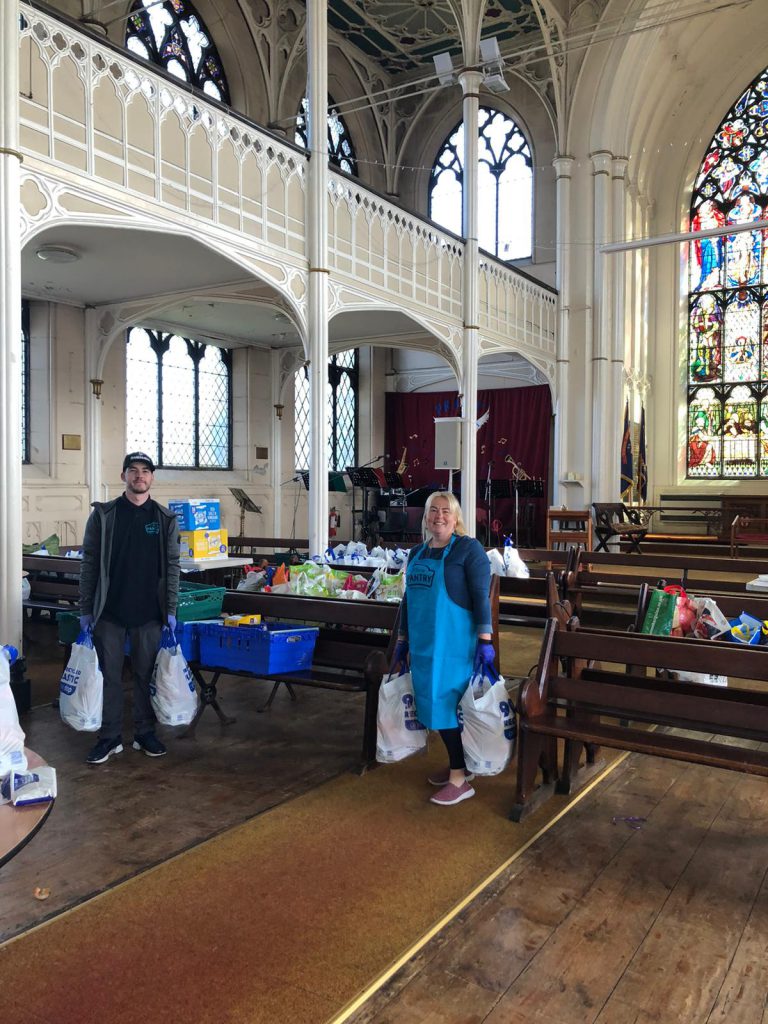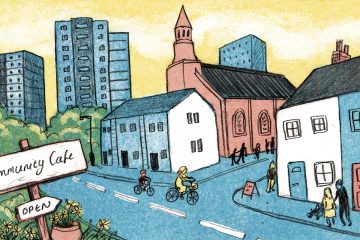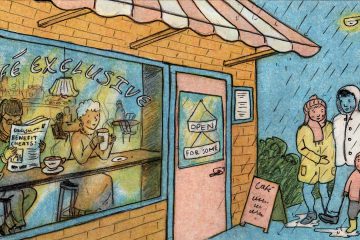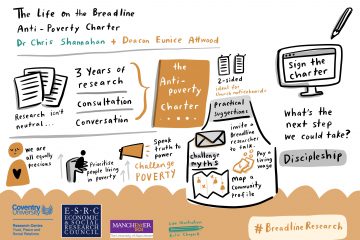The next in our series of guest blog posts during Covid-19 comes from Naomi Maynard, a food pantry volunteer in Liverpool. Naomi writes:

On 6th December 2019 St George’s Everton Your Local Pantry opened its doors for the first time, welcoming in 20 or so members who had heard about the new initiative from the coffee mornings we’d run in our local primary schools and in the community.
Word spread and by early March we had nearly 100 members on our books, averaging 40 visits a week. The pantry was sending members home with bags laden with fruit and veg as well as items from our fridge and freezer such as butter, sausages and yoghurts. Items they had chosen themselves to suit their household’s needs.
But right from the start our pantry has been about more than food – it’s been about community, relationships, a place to go to have a chat and meet a new friend.
For those first few months each member would be greeted with tea, coffee, biscuits and a smile from our volunteers. We ran a pantry raffle, table top quizzes and developed a pantry playlist with members choosing the wide range of music blaring from the church speakers.
Together we were reducing food waste, tackling food insecurity and slowly building community.
As the lockdown began, we had to adapt fast, no longer feeling we could safely welcome members to our building we have moved to a delivery model. Members let us know if they’d like a delivery that week – still on a Friday, the usual time our pantry community would have been gathering. Our church now turned into a packing station, with pews no longer full of people but of bags, we pre pack the parcels earlier in the week, and add our fresh, chilled and frozen items on the morning we go out.
Together we are still reducing food waste, and still tackling food insecurity. But what about building community?
I’m not going to lie, it has been hard. But in a small way the pantry community spirit is still being nurtured.
Offered the use of a team of corporate drivers to support out deliveries, we politely declined. Instead each week the same dedicated team of volunteers – divided into their 5 household groups – set off on the same or similar delivery routes as the week before. Seeing the same faces each week, the doorstep conversations have grown longer, relationships have formed. For some of our members, particularly those who are more elderly, this volunteer may be one of the only people they have a (socially-distanced) face to face conversation with that week.
As I sit in the cold church waiting for the teams to return from the deliveries, I look forward to the tit-bits of joy they bring back as they share how our members are doing. I delight at the text I received from a member explaining this week’s delivery was ‘like Christmas!’ and that she ‘loves seeing’ the volunteer who comes each week to her door. The community is still there, but it looks very different.
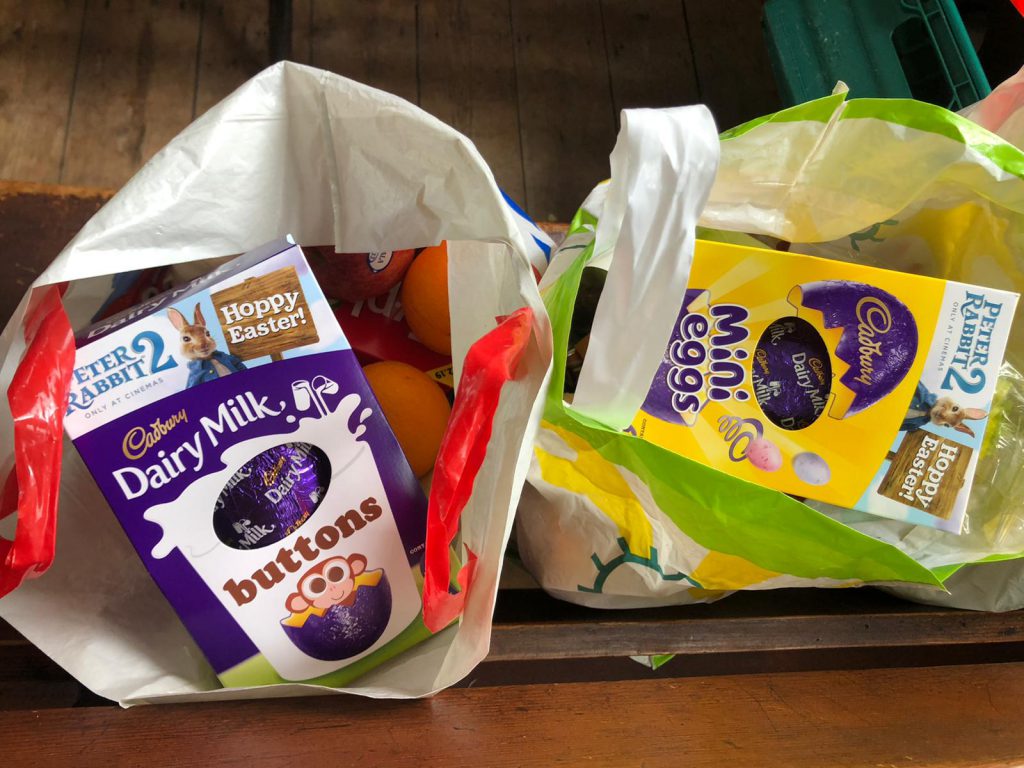
We long for and are working towards the days when members can safely come and choose their own food again – restoring that sense of dignity of being able to choose what you want and need to feed your household that week.
But alongside this, we also long for the days when we can once again sit around the large tables in church and share a tea, coffee and a few words. For some of our members these days may be far off, so until then we will continue to build our doorstep community.
